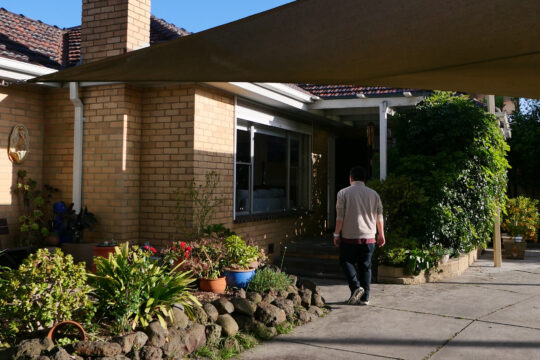Listening to the search experience talk immediately made me think about my own moving-from-Philippines-to-Singapore experience. I learned that we are information seeking creatures, and there are search-situations where we find things to make a decision (or decisions). In this case: I needed to find a room to rent.
First of all,
- I no longer remember where is where in SG.I’ve lived in Singapore for a few months four years ago, when I was doing exchange study, but I’ve forgotten where places are on the maps, and which stations are near each other.
- The only address I knew was the company’s address.
- I knew people who stay in SG, but were not renting a room themselves.
- Luckily, some of them knows a friend who has an extra room, so I had some places to check out as soon as I arrived in SG.
Pain points:
- I didn’t have any idea where to live.
- I knew where I was going to work but I didn’t know which common residential areas are near my new office.
- I knew how much I’ll earn, but —
- I didn’t know how much the average rent price is. I wanted to find something within reasonable budget.
- Because I wasn’t familiar with the place, when someone suggests an area I have to search if they’re near which station, how long it will take to go to work or to the city, etc. Enter scenario where I have multiple open tabs just to give me all the information I need.
How most rent-search sites do it: you type in an area you want to search for. Which assumes you already know where you want to find a place. So my process of searching was:
- Ask friends in Singapore for suggestions of nearby areas to start my search.
- Search for listings within those said areas.
- Read each listing description one by one, then dismiss based on info like price, landlord rules, availability of wifi, etc.
Basically, I was thinking of a search experience where you won’t see this box (or a list) that asks me where I want to find a place–because I didn’t where to start!
What if the search process started with an, “I Don’t Know!” and the app asked me things that are important to me? Simple questions like:
- Do I want to find a place near where I work?
- Will I take public transportation? What are my transportation choices?
- How long will it take me to travel from where I’d live to where I work?
- How near or far am I to groceries, shopping areas, etc.
- Do I cook?
- Is there a nearby hawker, or food court?
- Do I have a pet? Do I want to be able to keep a pet? Is this even negotiable, or non-negotiable!?
- Do I want my own room, or do I want to share (with a roomate, or live with a family)?
- Is there WiFi? Do I set it up/subscribe by myself?
- Do I have friends in the same country/area, and where do they live?
Answering these questions will help give me a better idea (maybe even visually!) which areas I’d like to find listings from. What percent of my salary will be going to rent? If I know anyone nearby and how far am I to my friends/relatives? Can I move in with my dog?
And because situations matter, we can consider the types of people who want to look for a new place to live:
- are they local?
- are they moving in from a different country?
- are they single, or moving a whole family? (if with a family, maybe they want to map out distances from schools, for example)
- maybe others I hadn’t considered.
What if maybe looking for a new place doesn’t have to be this boring, tedious process? What if it makes me feel like the app is tailor-fitting suggestions based on my lifestyle and the people who matter to me? Because we’re human and we’re social creatures and finding a place to live isn’t as simple as pinpointing a town or area for a list of rooms for rent.








Leave a Reply